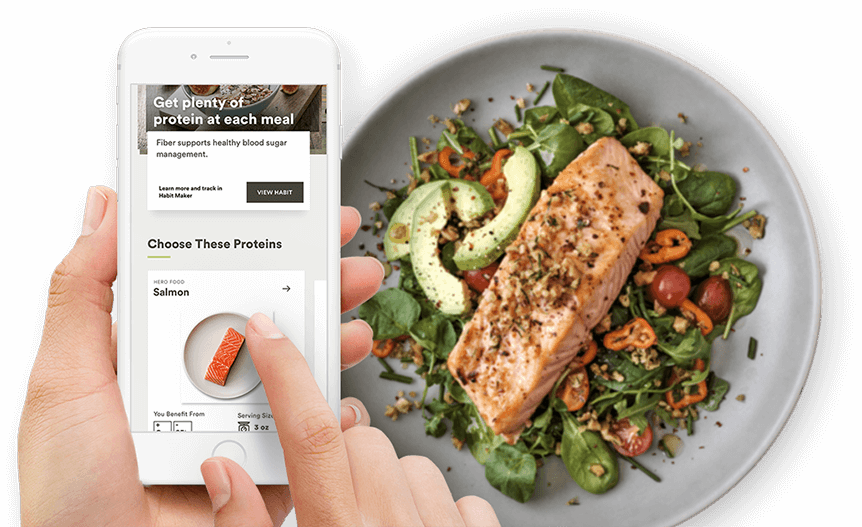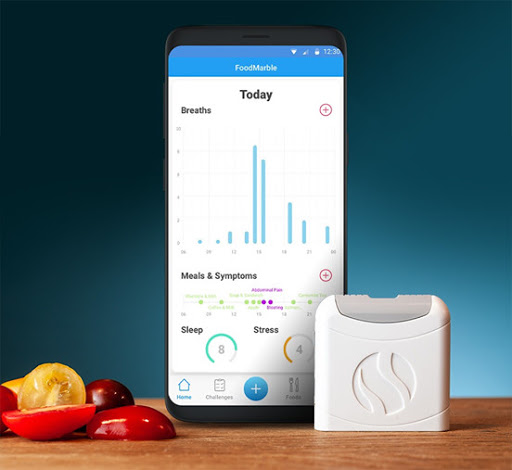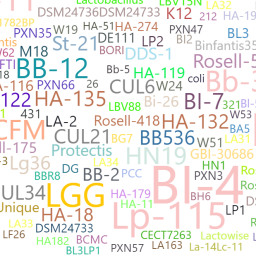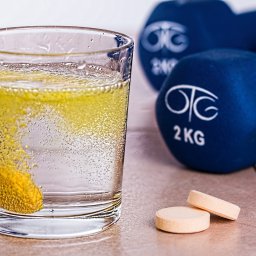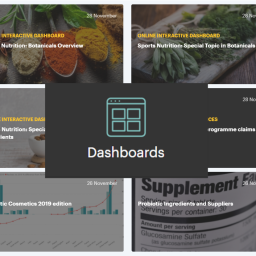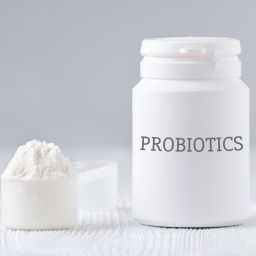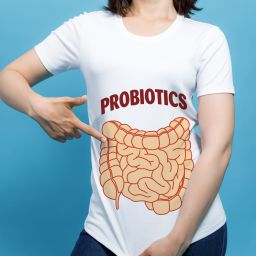
We live in the era of customisation. This trend is profoundly changing the ways we work, live and consume – including our food. It means increasingly personalised diets that fit in with people’s individual health goals and world views.
Some want personalised nutrition to reduce their disease risk. Some want to optimise their capacity to lose weight. Some want to achieve great hair, nails and skin. Others want to eat a diet with the lowest possible environmental impact. Genetic test kits, food labels, interactive apps, portable gadgets and intelligent home dispensing units – the toolkit for tailoring our diets to our needs and wants is expanding by the minute.
Getting your genes tested is hip
There are countless players already active in the personalized nutrition space, offering a variety of different approaches. Take Habit Food Personalized LLC, based in Oakland, California, as an example. It asks customers to provide recent blood lipid test values, like LDL cholesterol, activity levels and personal wellness goals.
The company uses the data provided to explain to its customer “how their body handles carbs, fat, protein, etc.” It also issues them with a nutrition plan, which includes their “ideal plate,” a daily food guide, top ranked foods and personalized recipes.
For many, when they hear the term “personalized diet”, they immediately think nutrigenomics. Nutrigenomics is a field of nutritional science investigating the effects of diet and dietary components on gene expression. The premise is that we are all genetically different and that our bodies respond differently to the foods we ingest. A genetic predisposition to a disease, for example, may lie dormant until triggered by an environmental factor, such as a specific dietary compound, or a certain type of diet.
Genetic tests are en vogue. Discovering one’s ancestry by means of DNA analysis is getting more and more popular, with people sharing the (often surprising) results on social media. According to MIT Review, at the beginning of 2019, around one in 25 Americans had submitted samples of their genes for genealogy analysis.
It is reasonable to assume that this trend will also boost demand for nutrigenomics testing. Arguably, this may be somewhat more useful than knowing that 2% of your genetic material hails from hunting tribes that once roamed the Eurasian tundra.
The microbiome – highly individual, highly changeable
So, our genomes vary from person to person impacting on how nutrients are digested, absorbed and utilised by the body. But the degree of variation between individuals goes further than that. Each and every one of us possesses a unique intestinal flora, aka the gut microbiome. This is sometimes even referred to as our second genome.
The role it plays in our wellbeing is manifold and includes aiding digestion, vitamin synthesis, and the maintenance of a healthy immune and nervous system. It is also implicated in several metabolic functions that are important to cardiovascular health. The scientific community recognises that a persistent state of microbial imbalance in the gut, also termed “dysbiosis,” can trigger chronic illness.
Of the around 150 different types of organisms present in the human intestine, around one third are shared by most people, while two thirds are specific to the individual. It is also important to consider that the gut microbiome is not a static entity, but a fluctuating population of microbes subject to a wide variety of environmental influences, including diet, stress levels and lifestyle.
Research into gut microbiome composition has found notable differences, for instance, in slim vs. obese people and in sedentary subjects vs. elite athletes. Some research has shown, for example, that elite rugby players had increased numbers of a type of organism called Akkermansia, which is associated with leanness. Another study involving endurance cyclists found their gut flora to be populated with markedly high levels of Prevotella.
Probiotics in Sports Nutrition – an opportunity?
Of the 2,075 bestselling probiotic supplements captured by Lumina Intelligence, only 2 made claim to aid in sports. Both were found in Germany, an already established sports nutrition market. With East Asia’s already booming probiotics market, and growing sports nutrition one, it highlights a key region for sports nutrition probiotic products to expand into.
See more details on our report about Probiotics in Sports Nutrition here.
There can be no doubt at this stage that the gut microbiome, diet, lifestyle and overall health are closely interconnected. The relationship is a highly complex one, and cause and effect aren’t established yet in most cases. Does a well-functioning gut microbiome give rise to a healthy body or is it the other way around? It’s a classic chicken or egg conundrum that will keep researchers busy for decades to come.
As the evidence base grows, microbiome modulation based on products aimed at specific health goals is expected to become a major trend in the foreseeable future. Test kits for assessing the state of one’s microbiome are already available.
Atlas Biomed Group Ltd, based in the UK, for one, analyses stool samples to identify which bacteria account for what percentage of their client’s microbiome. Based on this, the client receives a personal microbiome health score, which includes a disease risk assessment. Furthermore, Atlas Biomed provides its clients with personalised food recommendations on a weekly basis. The objective is to increase the share of healthy bacteria, boost wellbeing and lower the individual’s disease risk.
Apps and gadgets to cut through the confusion
Technological innovation is driving personalization on all fronts, and this includes aspects such as physical fitness and diet. The International Food Council’s (IFIC) most recent Food and Health Survey showed that 80% of respondents were confused by conflicting information about food and nutrition. A substantial 59% indicated that this made them feel insecure about their choices and that it turned shopping into a stressful experience.
This explains, in great part, the growing appeal of employing technology to simplify the whole process. Consumers want a reliable way to identify what products suit both their bodies and their lifestyles, and also which ones they may want to stay away from.
FoodMarble, based in Dublin, has developed the FoodMarble Aire, a pocket-sized breath test device that feeds into an app. The gadget targets a potentially huge audience: people with digestive problems. According to the company, one in eight people suffer from “frequent digestive disruption.”
The device measures the hydrogen present in breath. The gas is produced by bacterial fermentation of undigested carbohydrates in the large intestine. Excessive fermentation activity is a frequent cause of digestive discomfort.
Via an app, the breath test results are tracked and displayed on the user’s mobile phone. The technology is meant to help its users to identify their personal food triggers that cause them discomfort, and eliminate them.
Dutch multinational Royal DSM, a well-established player in the nutrition field, recently teamed up with North America based Panaceutics Nutrition, an emerging player in the digital health arena. It specialises in patented technologies that combine data on daily habits, various biomarkers and genomics, allowing for the production of cost-effective, customised formulations for end products like dietary supplements, nutrition bars and beverages.
Via a collaboration with Mixfit, another digital health company, DSM has been able to harness artificial intelligence (AI). Mina, Mixfit’s Intelligent Nutrition Assistant, is capable of analysing user data, including genetic information, health goals, etc, and create nutritionally calibrated beverages in the comfort of the consumer’s home. Such intelligent home dispensing units may well be the future of nutritional supplements.
A healthy body matters just as much as a healthy planet
The remit of what constitutes a personalized diet extends way beyond nutrition and health. The wellbeing of the planet is increasingly taken into consideration, as are ethical concerns, including animal welfare. The aforementioned IFIC research report reveals, for instance, that purchasing in a sustainable way was important to six out of ten consumers surveyed.
This trend is even observable in the sports nutrition products market, which, traditionally, tended to be very much focused on the physical performance dimension. Lumina Intelligence, which researches the global sports nutrition market, found that protein powders with a grass-fed label have seen a 41% increase in online engagement between September 2018 and March 2019. Grass is the most natural and sustainable food source for cattle, and grass-fed animals enjoy much healthier lives as a consequence.
- Reviews for protein powders with grass fed claim
The future of personalised diets: values, collaboration and tech innovation
Food is much more than merely nourishment for the body – it is, amongst other things, about expressing one’s personal values, beliefs and convictions. Players entering the personalized nutrition industry space will need to take this into consideration if they want to compete in an environment, where personal and nutritional values are now regarded as equally important.
Technological advances are gradually turning the age of personalized nutrition into a commercial reality. For younger age groups, who are “digital natives,” technology can help reduce the anxiety and stress created by the overwhelming volumes of often conflicting dietary and health advice coming at them through multiple channels.
The global personalized nutrition market is still in its infancy, but evolving fast. We expect it to re-define the competitive landscape by means of strategic alliances between the food and dietary supplements industries and cutting edge technology companies.
View all our reports
See the range of reports we offer for the sports nutrition market including market overviews, deeper examinations of niche markets, country insights and more.


